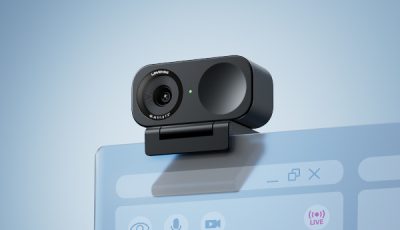Keep Your Private Parts Private by Using Secure Sex Toys
 Smart sex toys—lovingly dubbed “teledildonics” online—have been getting more popular, and much smarter, for years now. From pleasure devices that vibe along with your favorite tunes, to WiFi-enabled toys that connect intimate partners from across the globe, to devices that track the orgasmic responses of their users, the teledildonics field is a marvel of modern science, postmodern pleasure — and possible security breaches.
Smart sex toys—lovingly dubbed “teledildonics” online—have been getting more popular, and much smarter, for years now. From pleasure devices that vibe along with your favorite tunes, to WiFi-enabled toys that connect intimate partners from across the globe, to devices that track the orgasmic responses of their users, the teledildonics field is a marvel of modern science, postmodern pleasure — and possible security breaches.
While most of us are at least vaguely aware that our privacy is on the line when we use our smartphones, tablets, and fitness trackers, few of us are thinking as clearly about the tech we apply to our naughty bits.
When we think “safe sex” we tend to think more about STIs than wireless butt plugs –much to our own detriment. Smart sex toys are guilty of every security failing you can think of, but the data they’re capable of leaking (or outright selling to advertisers) is of a much more, er, sensitive type than, say, your Spotify preferences.
Case in point: Back in 2017, toy company Lovense was called out when it was discovered that an app paired with its devices was recording audio of sexual encounters without users’ knowledge. Lovense called it a “minor bug.” Oodles of other toys, which use Bluetooth Low Energy (BLE), are so easy to hack that there’s a name for it: “screwdriving.”
All of which is to say that consumers should be thanking their lucky stars for helpful websites like The Internet of Dongs, which has been keeping track of sex toy security for a while now. It remains a rather obscure online destination frequented largely by tech geeks and privacy fanatics, however.
Earlier this month, however, Mozilla recently updated its “Privacy Not Included” consumer guide to include some pleasure devices—a bold step for a major company that had previously eschewed adult products.
Your sexual security is on the line, folks. Keep your private parts private!













